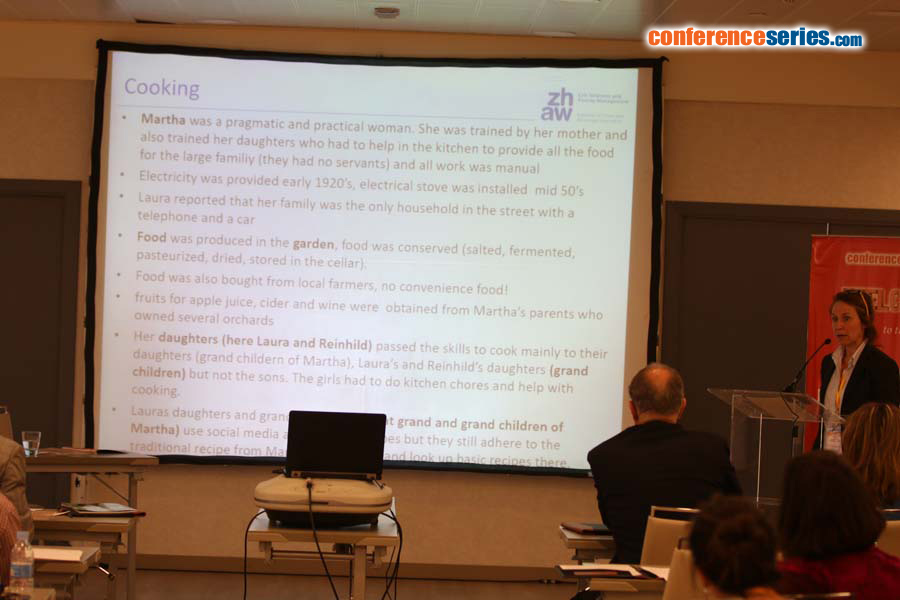
Christine Brombach
Zurich University of Applied Sciences, Switzerland
Title: Meals and eating practices in a multi-generational approach – A qualitative insight study
Biography
Biography: Christine Brombach
Abstract
Statement of the Problem: Eating behavior is predominantly learnt in childhood during socialization, growing up in a cultural context. Family, parents, (great) grandparents play an integral important role. Development of meals, eating practices should be considered in the context of intergenerational influences. It was the aim of this qualitative study to investigate influences on eating behaviour in a German family living in South-West Germany. The family is unique, most of descendants of the “parents” (F1) (born end of 19th century) still live in proximity. F2 are children, F3 grandchildren, F4 great grandchildren, F5 great great grandchildren. F1 parents had 15 children (two daughters still alive, 90, 86 years), there are 32 grandchildren, 50 great grandchildren and F5 (as today) more than 10 great great grandchildren.
Methodology & Theoretical Orientation: A written survey was conducted with as many family members as possible and where feasible in depth qualitative interviews were conducted. Thereby a hermeneutic interpretation cycle was used to develop themes and topics on meals and meal practices.
Findings: At present the study is still ongoing. Preliminary findings: The predominant role of women in meal preparation, use of family recipes, rituals can be traced into the F4 generation. It seems that the matrilineal dissemination of meal structures and meanings, family recipes, use of cherished cookbooks, rituals is stronger than in the patrilineal way.
Conclusion & Significance: This is a pilot and exploratory study so results may not be generalized and should be interpreted with caution. Nevertheless, some aspects and comparison with other studies are striking such as a previously conducted three generation approach in German sample, where also similarities can be traced within a three generational approach. So far very few studies have been conducted in a three generational approach let alone in multi-generational approach in one family. Findings might help to better understand onset of eating practices.




